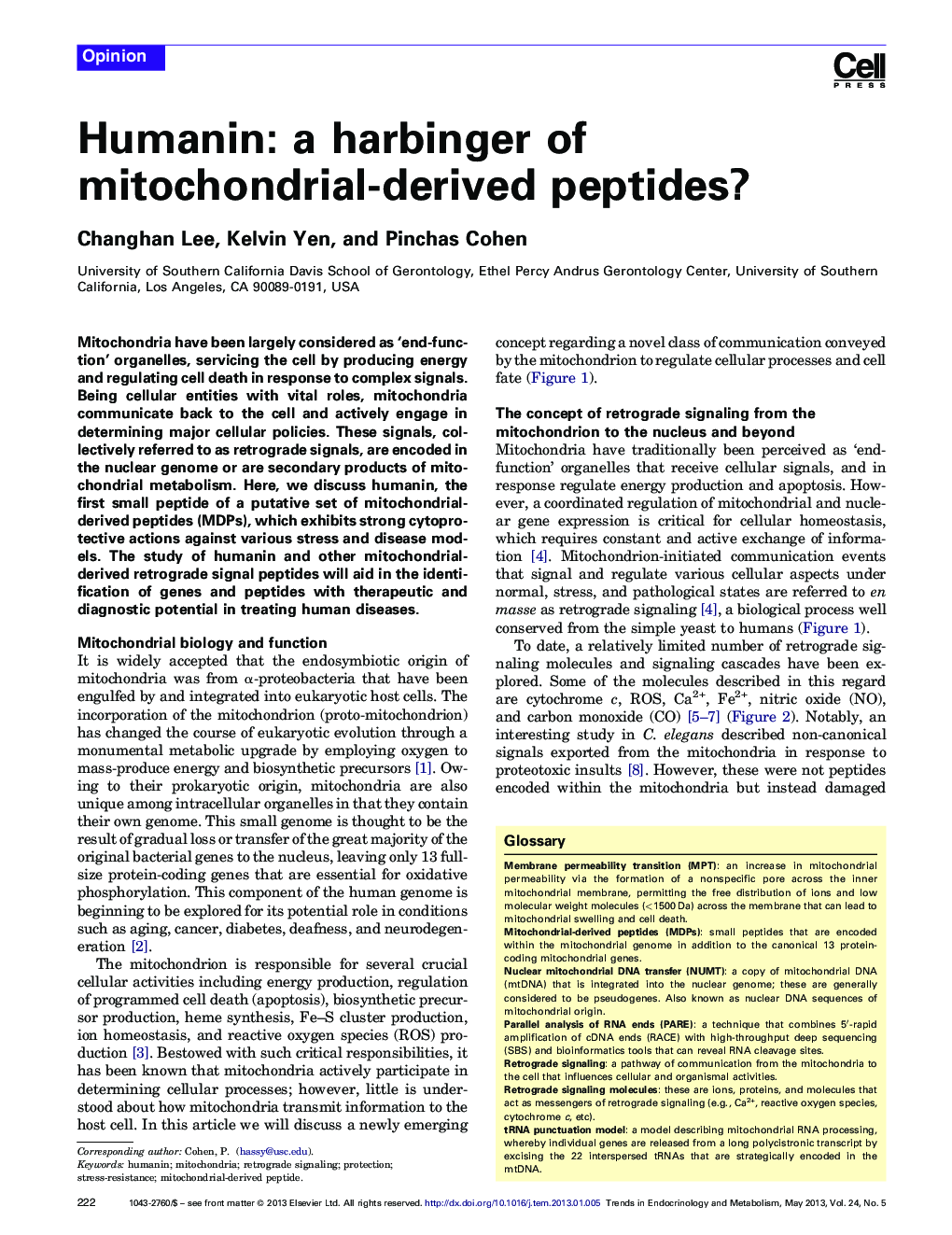| Article ID | Journal | Published Year | Pages | File Type |
|---|---|---|---|---|
| 2810367 | Trends in Endocrinology & Metabolism | 2013 | 7 Pages |
Mitochondria have been largely considered as ‘end-function’ organelles, servicing the cell by producing energy and regulating cell death in response to complex signals. Being cellular entities with vital roles, mitochondria communicate back to the cell and actively engage in determining major cellular policies. These signals, collectively referred to as retrograde signals, are encoded in the nuclear genome or are secondary products of mitochondrial metabolism. Here, we discuss humanin, the first small peptide of a putative set of mitochondrial-derived peptides (MDPs), which exhibits strong cytoprotective actions against various stress and disease models. The study of humanin and other mitochondrial-derived retrograde signal peptides will aid in the identification of genes and peptides with therapeutic and diagnostic potential in treating human diseases.
► Humanin represents a putative set of mitochondrial-derived peptides. ► Humanin is secreted from cells and found in plasma, as well as bound to cellular membranes. ► Humanin acts as a ligand to two different types of receptors. ► Humanin has cytoprotective effects and also improves glucose tolerance and onset of type 1 diabetes.
